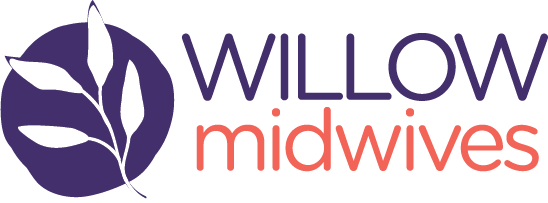It’s never too early to start talking to your baby. Even in the second trimester, babies have the ability to hear and process speech, and by the time they’re born, they can recognize their mother’s voice and the books read to them during their final weeks in the womb! But their development at this point is only just beginning. During the first three years of life, a baby will make critical steps in their speech and language development: in fact, studies suggest that the greater the number of words children hear before age three, the higher their IQ and the better they will perform in school. And while talking to your baby is helpful, the quality and quantity of words you use can have a huge impact when it comes to communication development. If you tend to be quiet by nature or feel awkward talking with babies, unleash your inner chatterbox with these simple tips:
Follow Your Baby’s Lead. Closely observe your baby and take note of what they're looking at, leaning toward, or reaching for. Find out what captures their attention and use it as an opportunity to add language to their world. For example, if you notice your baby looking at a dog, you could comment (“You’re looking at a dog!” or “That’s a dog!”) and follow by saying what your baby might say if they could talk (“Wow! Look at his tail wag!”). This will help your little one engage in conversations at their own level, and give them words for what they’re experiencing.
Recognize and respond to your baby’s attempts. A quick glance or a change in body position might mean, “I want that toy!” or an excited squeal might mean, “Hey, look at that!” Although it may be as subtle as this, recognizing and accepting these forms of communication as meaningful is key when supporting early communication skills. Doing so encourages your baby’s attempts to communicate while showing them that you've noticed their intentions, and that you’re interested in what they have to share with you. Acknowledge and respond as soon as you notice any attempts, and that sweet babe will reward you!
Add words to your baby’s experiences. From their perspective, a lot happens in a typical day. Feeding, dressing, diapering, bathing, exploring … each of these activities is the perfect opportunity to support their development. Talking during a routine like bath time is very stimulating, and can be as simple as narrating what you're doing: “Let’s wash your toes. Are you ready?” (Pause and wait for eye contact.) “Ok, here comes the soap! Ooooh bubbles!”
Get your baby face-to-face. Babies love studying faces! Face-to-face opportunities help babies make sense of all the information a face can convey, while seeing how mouths move when forming sounds and words. Something as easy as positioning yourself so your little one can look directly into your eyes, or encouraging adoring fans to say “hi” will give your baby that riveting face time they crave!
Kate Lamb is a speech-language pathologist and two-time Willow mama of a babbling baby and an exceptionally chatty preschooler. Kate also teaches baby and toddler music classes in Minneapolis and is the founder of The Innovative Therapy Company.

